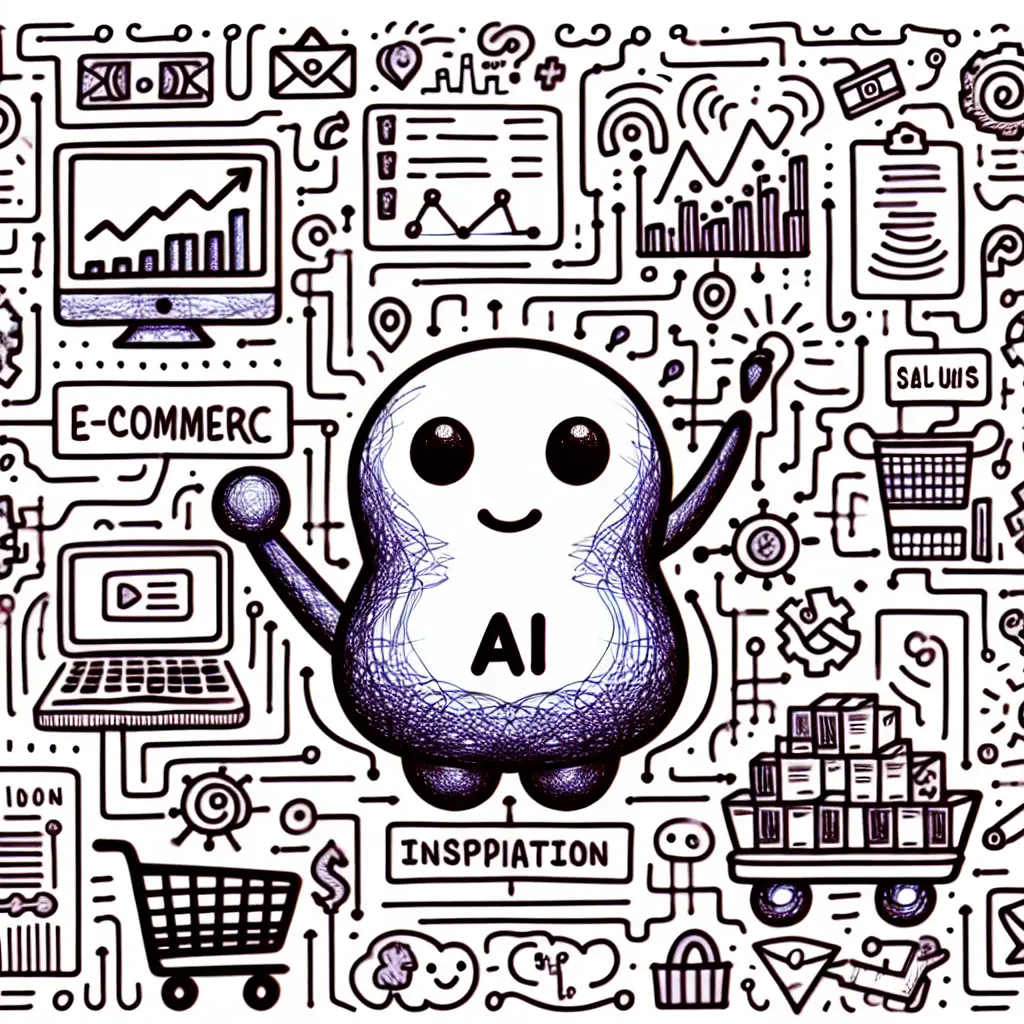
Introduction
Artificial Intelligence, AI in e-commerce refers to the use of advanced algorithms and machine learning techniques to enhance the online shopping experience. AI plays a crucial role in personalizing customer interactions, optimizing inventory management, and improving sales forecasting. As online shopping continues to grow, the integration of AI technologies has become increasingly important for businesses aiming to stay competitive in the digital marketplace.
Current trends indicate that AI is being integrated into various aspects of online sales, including chatbots for customer service, personalized product recommendations, and dynamic pricing strategies. These innovations aim to improve customer satisfaction and drive sales by delivering a tailored shopping experience.
Recent insights from a survey conducted by Omnisend, which included 1,026 respondents from the US, reveal that a significant portion of consumers are open to AI-driven enhancements in their shopping experience. This data underscores the growing relevance of AI in shaping consumer preferences and behaviors in the e-commerce landscape.

Current Consumer Attitudes Toward AI
General Sentiment
Consumer attitudes toward AI tools in e-commerce are evolving. While a notable 66% of consumers prefer to make their own purchasing decisions, a significant 34% express openness to AI assistance in their shopping experiences. This indicates a growing acceptance of AI-driven solutions, as more shoppers become comfortable with the integration of technology into their buying processes.
To learn more about the impact of AI on purchasing decisions, check out our article on The Role of AI in Modern Retail.

Benefits of AI in E-commerce
Enhanced Shopping Experience
- Personalized Recommendations: 38% appreciate tailored suggestions, leading to improved customer engagement. For insights on customer engagement strategies, read our article about Enhancing Customer Engagement Through AI.
- Statistic: AI-powered product recommendations can boost conversion rates by up to 30%.
- Faster Shopping Processes: 31% acknowledge quicker transactions through AI tools.
- Impact: AI reduces cart abandonment rates by up to 30%.
Improved Marketing Strategies
- Personalized Marketing: Tailored content strategies can enhance sales by 20%. For more on personalized marketing, check out our piece on Effective Personalization in Digital Marketing.
- Dynamic Pricing: Utilizing AI for pricing strategies can increase profit margins by 10-20%.

Consumer Concerns Regarding AI
Data Privacy Issues
Over half of consumers express concerns about data mishandling. According to recent studies, 28% of consumers distrust businesses’ data practices, highlighting the need for transparent data management. The challenges presented by data handling emphasize the necessity for strong data policies. For insights on data management, see our article on Navigating Data Privacy in E-commerce.
Challenges in AI Interactions
A significant 39% of consumers abandon purchases due to inaccurate recommendations. Additionally, 40% of consumers express frustration over the lack of human support in AI-driven customer service.

Consumer Preferences for Service Quality
Nearly half of consumers prefer enhanced service quality over automation. This preference highlights the importance of maintaining a human touch in AI interactions. When consumers feel a personal connection, it helps to build trust and fosters a positive experience. Despite the efficiency that automation can bring, the emotional aspect of customer service remains a critical factor in consumer satisfaction.
For more on maintaining service quality in AI, read Balancing Automation and Human Touch in Customer Service.

Recommendations for Retailers
Building Consumer Trust
- Prioritize transparency in AI operations and data usage.
- Communicate AI benefits clearly to bridge the trust gap with consumers.
Enhancing Customer Support
- Implement AI-powered chatbots to improve customer satisfaction.
- Statistic: 65% of e-commerce businesses report enhanced customer satisfaction post-implementation. For insights on chatbot effectiveness, see our article on The Rise of Chatbots in E-commerce.
- Offer options for human support alongside AI tools to address consumer frustrations.

Future Trends in AI and E-commerce
The future of AI in e-commerce is poised for significant evolution, with predictions suggesting that AI technologies will become increasingly sophisticated and integral to online sales strategies. As machine learning algorithms improve, we can expect more personalized shopping experiences, where AI can analyze customer data to predict preferences and recommend products with greater accuracy.
Additionally, the potential for AI to innovate customer service is substantial. Chatbots and virtual assistants are expected to become more advanced, enabling them to handle complex customer inquiries and provide real-time support. This could lead to enhanced customer satisfaction and loyalty, as AI systems become capable of offering tailored solutions.
Moreover, AI is likely to influence sales strategies by automating various processes, from inventory management to dynamic pricing. As businesses integrate AI-driven analytics, they can optimize their marketing efforts, ensuring that promotions and advertisements are targeted more effectively.
In summary, the evolution of AI technologies in online sales will not only enhance customer interactions but also revolutionize operational efficiencies, paving the way for innovative approaches in the e-commerce landscape.

Conclusion
AI has fundamentally transformed the landscape of e-commerce, providing businesses with powerful tools to enhance customer experiences, optimize operations, and drive sales. From personalized recommendations to efficient inventory management, the integration of AI technologies has enabled companies to work smarter and respond more rapidly to market demands.
However, as we embrace these advancements, it is crucial to adopt a balanced approach to AI integration. Businesses must prioritize consumer preferences and build trust with their customers. Transparency in how AI systems operate and how consumer data is used is essential for maintaining a positive relationship between companies and their clients. By focusing on these principles, e-commerce can harness the full potential of AI while ensuring a fair and trustworthy shopping environment.


